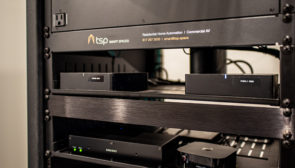8 compelling reasons to invest in a smart home
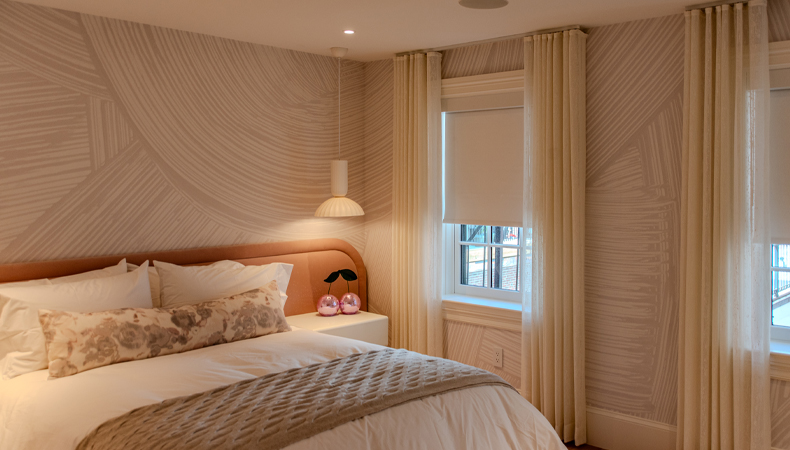
Technology is rapidly transforming our daily lives and the concept of a smart home has evolved from a futuristic fantasy to an accessible reality. As we increasingly seek ways to make our lives more comfortable, efficient, and secure, smart home technology offers huge benefits. If you’re on the fence about whether to invest in a comprehensive smart home system, here are eight reasons that might just convince you to take the plunge.
1. Enhanced comfort and personalization
 Imagine waking up to gentle sunlight as your smart shades gradually open, while your favorite morning playlist starts playing softly in the background. This isn’t a scene from a sci-fi movie; it’s the reality of living in a smart home. And a reality that is becoming far more accessible for people to bring to life.
Imagine waking up to gentle sunlight as your smart shades gradually open, while your favorite morning playlist starts playing softly in the background. This isn’t a scene from a sci-fi movie; it’s the reality of living in a smart home. And a reality that is becoming far more accessible for people to bring to life.
Smart homes have the remarkable ability to learn your preferences and habits, creating a living environment that’s tailored specifically to you. From adjusting the temperature before you arrive home to raising the shades automatically each morning, these intelligent systems work tirelessly to enhance your comfort and convenience.
The beauty of smart home technology lies in its adaptability. As your routines and preferences change, so too can your home’s behavior. This level of personalization ensures that your living space is always in harmony with your lifestyle, providing a uniquely comfortable experience that traditional homes simply can’t match.
2. Enhanced energy efficiency
Environmental consciousness is more important than ever, and smart homes offer a concrete way to reduce your carbon footprint while also saving money on energy bills. The secret lies in the intelligent management of your home’s systems.
Smart thermostats, for instance, learn your temperature preferences and daily routines. They can automatically adjust heating and cooling to optimize comfort when you’re home and conserve energy when you’re away. Some models even take into account factors like weather forecasts and the thermal characteristics of your home (wood vs. concrete for example) to further fine-tune their operation.
Smart lighting systems are another energy-saving solution. They can turn off lights in unoccupied rooms, dim automatically based on natural light levels, and even learn your lighting habits to predict when lights should be on or off. When integrated with motion sensors, these systems ensure that energy is never wasted on illuminating empty spaces.
Smart power solutions
Finally, smart power solutions like Savant Power can monitor and control the power consumption of your connected devices, automatically cutting power to electronics that are in standby mode and wasting energy. These smart power systems can learn which devices are essential and which can be safely powered down when not in use. Additionally, smart meters provide real-time data on your home’s energy consumption, allowing you to identify energy-hungry appliances and adjust your usage habits accordingly. These smart power solutions can optimize your home’s energy use based on factors like time-of-use pricing from utility companies, potentially shifting energy-intensive tasks to off-peak hours when electricity is cheaper and demand on the grid is lower.
3. Improved home security
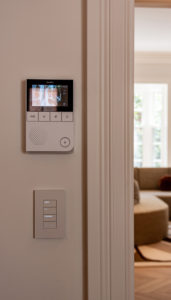
Home security is a top priority for most homeowners, and smart home technology takes it to the next level. With advanced security systems that offer real-time monitoring and alerts, you can have peace of mind whether you’re at home or halfway across the world.
Smart entry systems with integrated cameras allow you to see who’s at your door, even when you’re not home, and grant access or deny entry to each person who comes to your home. You can communicate with visitors through your smartphone, giving the impression that you’re home even when you’re not. This feature is particularly useful for deterring potential intruders or managing deliveries.
Motion sensors and smart cameras can monitor activity around your property, sending instant alerts to your phone if any unusual movement is detected. Some systems can even distinguish between people, animals, and vehicles, reducing false alarms and providing more meaningful information.
These advanced security features not only protect your property but also provide invaluable peace of mind. Knowing that you can check on your home at any time and receive immediate notifications of any security concerns allows you to relax and focus on other aspects of your life.
4. Increased convenience
One of the most immediate benefits of a smart home is the sheer convenience it offers. By automating routine tasks and providing intuitive control over your home’s systems, smart technology can significantly simplify your daily life.
Voice-controlled assistants like Amazon’s Alexa or the more security-focused Josh.ai can become the central hub of your smart home. With simple voice commands, you can control lighting, adjust the thermostat, play music, set reminders, and even order groceries. This hands-free control is particularly useful when you’re busy with other tasks or when your hands are full.
Automated routines can take care of repetitive tasks without you having to lift a finger. Your motorized shades can raise or lower throughout the day depending on your schedule and the sun’s path, your home can lock automatically at night when you’re heading to bed, and your home can turn off all lights each time you leave the house for the day. There’s no limit to the number of automations you can have set to simplify your life.
By taking care of these small but time-consuming tasks, smart home technology frees up your time and mental energy, allowing you to focus on the things that truly matter to you.
5. Better accessibility for all
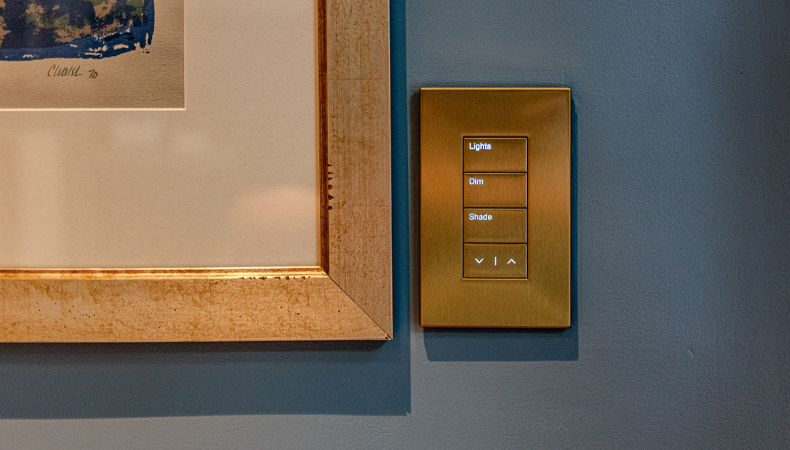
Smart home technology isn’t just about convenience and efficiency; it’s also about creating more inclusive living spaces. For individuals with mobility issues or disabilities, smart home features can be truly life-changing, promoting independence and improving quality of life.
Voice-controlled systems allow people with limited mobility to easily manage various aspects of their home environment. From adjusting the thermostat to turning on lights or operating appliances, these tasks can be accomplished with simple voice commands, reducing the need for physical interaction.
Smart home systems can also be programmed to accommodate specific needs. For instance, for individuals with hearing impairments, visual alerts can be set up to notify them of events like someone ringing the doorbell or a timer going off in the kitchen.
For those with visual impairments, voice assistants can provide audio descriptions of information typically displayed visually, such as thermostat settings or the contents of a smart refrigerator.
For the elderly, tasks that were once simple can become more challenging. In a home with large window shades, raising and lowering them daily can be a challenging, even dangerous task. Smart homes allow people to grow with their homes.
Automated systems like smart locks and doors can make entering and exiting the home easier for people using wheelchairs or those with limited hand dexterity.
By making homes more accessible and easier to manage, smart technology allows more people to live independently and comfortably in their own homes, regardless of age or ability.
6. Increased property value
Investing in smart home technology isn’t just about improving your current living situation; it’s also a strategic move that can boost your property’s value and appeal to potential buyers if you ever decide to sell.
According to our recent survey, 73% of new buyers are willing to pay a premium for homes equipped with smart features. These tech-savvy buyers view smart homes as modern, efficient, and move-in ready, making them more attractive in a competitive real estate market.
Smart home features that tend to be particularly appealing to buyers include:
– Smart security systems
– Energy-efficient smart thermostats
– Automated lighting systems
– Automated shades and blinds
These features not only offer immediate benefits to the new owners but also suggest that the home has been well-maintained and updated, which can be a significant selling point.
As smart home technology becomes more mainstream, homes without these features may start to seem outdated. By investing in smart home technology now, you’re future-proofing your property and ensuring it remains competitive in the real estate market for years to come.
7. Remote home management
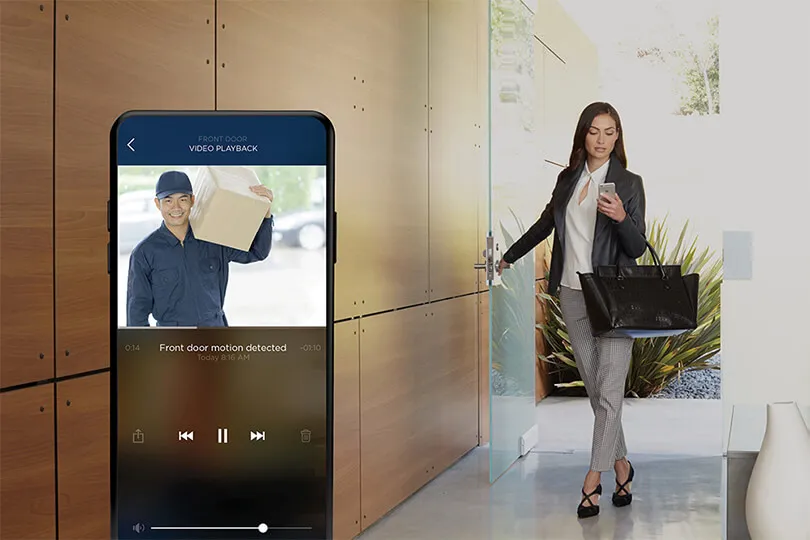
One of the most powerful advantages of a smart home is the ability to monitor and control your home from anywhere in the world. All you need is a smartphone and an internet connection to have complete oversight and control over your home’s systems.
This remote management capability offers numerous benefits:
– Security: Check your security cameras, receive alerts about unusual activity, or even grant access to a trusted neighbor or service professional, all from your phone.
– Energy Management: Forgot to turn off the air conditioning before leaving for vacation? No problem. You can adjust your home’s temperature settings remotely to save energy.
– Convenience: Turn on the air conditioning or turn on the porch lights before you arrive home, all with a few taps on your smartphone.
– Peace of mind: For many people, the ability to check on their home at any time provides invaluable peace of mind, whether they’re worried about pets, family, or potential security issues.
– Smart home service: A well-designed smart home with remote management capabilities means you can more easily get updates and troubleshooting help for your system. Your integrator will be able to remotely access your devices and update any pending security updates or run any diagnostics, reducing the disruption to your life and home.
8. Integration with Health and Wellness
In recent years, there has been a growing focus on health and wellness in all aspects of our lives, including our living spaces. Smart home technology is at the forefront of this trend, with an increasing number of devices designed to promote healthier living.
A survey found that 80% of people view wellness as “very or extremely” important, and smart home manufacturers are responding to this demand. Here are some ways smart home technology is contributing to healthier lifestyles:
– Air quality: Indoor environments can be up to five times more polluted than outside. Smart air purifiers can monitor indoor air quality in real-time, automatically adjusting their operation to remove pollutants and allergens.
– Water quality: Smart water filtration systems can monitor water quality and usage, ensuring your household always has access to clean, safe water.
– Stress reduction: Smart lighting systems can be programmed to mimic natural light patterns, helping to regulate your circadian rhythm and reduce stress.
By creating an environment that actively supports your health and wellness goals, smart homes can play a crucial role in promoting a healthier lifestyle.
Wrapping up
From enhanced comfort and energy efficiency to improved security and health support, smart home technology offers a wide range of advantages that can significantly improve your quality of life.
While the initial investment in smart home technology may seem substantial, the long-term benefits in terms of energy savings, increased property value, and improved lifestyle make it a worthwhile consideration for many homeowners. Interested in starting your smart home journey? Reach out to us today. We’d love to chat!

